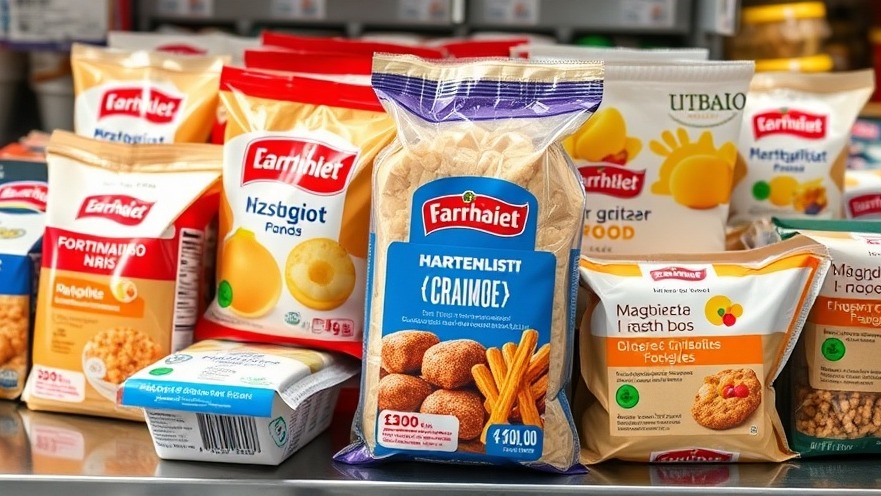
Unlocking the Power of Fortified Foods for Your Health
In today's fast-paced world, eating a balanced diet can feel overwhelming, especially with the abundance of highly processed options available. The rise of fortified foods represents an innovative solution to counteract nutritional deficiencies that stem from modern eating habits. By enhancing everyday foods with essential nutrients, these products aim to fill the gaps caused by our convenience-driven diets. So, what exactly are fortified foods, and why should you consider incorporating them into your daily meals?
What Are Fortified Foods and Their Benefits?
Fortified foods are items that have added nutrients that aren’t typically present in significant amounts in their unprocessed forms. They come with labels showcasing added vitamins, minerals, and even probiotics to boost digestive health. For instance, many cereals are fortified with essential vitamins like B12 and iron, crucial for maintaining energy and brain function. Probiotic yoghurts improve gut health, while vitamin D-fortified milk can help prevent conditions like rickets. These foods are tailored to support not just your daily requirements but also promote long-term health benefits.
A Historical Journey of Food Fortification
The concept of fortifying foods dates back to the early 1900s as a response to prevalent nutrient deficiencies. Governments and health agencies recognized the need for widespread nutritional interventions, leading to a series of food fortification programs:
1920s: Iodine was added to salt to mitigate goitre, a condition linked to iodine deficiency.
1930s: Vitamin D was introduced in milk to combat rickets, particularly in children.
1940s: B vitamins were infused into flour to prevent pellegra and beriberi, both serious health disorders.
1990s: Folic acid became a staple in flour to address neural tube defects in new-borns.
This evolution underscores the ongoing efforts to enhance public health through strategic dietary changes. The triumphs of these initiatives remind us of the essential role fortified foods have played in fighting nutritional deficiencies.
Why Choose Fortified Foods?
Incorporating fortified foods into your diet can simplify your nutritional intake, ensuring you receive vital nutrients. For busy Londoners juggling multiple responsibilities, these foods can serve as a convenient way to enhance diet without requiring a complete overhaul of traditional eating habits. Moreover, fortified foods are typically affordable and widely available in supermarkets, making them accessible to all.
Practical Tips for Choosing Fortified Foods
When selecting fortified products, always check the nutritional labels to understand what health benefits they offer. Look for foods that contain:
Natural sweetness instead of added sugars—important for gut health.
High levels of beneficial ingredients like Omega-3s found in fortified egg products.
A variety of vitamins and minerals suited for your specific health needs, whether that's iron for energy or calcium for bone health.
Don't hesitate to explore diverse options, ranging from fortified plant milks to enriched cereals that provide an array of tastes and nutritional profiles.
In Conclusion: Take Charge of Your Nutrition!
Fortified foods represent a valuable tool for those aiming to enhance their nutrition amidst life's daily hustle. Embracing these products can ensure that you're getting enough essential nutrients to support overall health and well-being. As you navigate your grocery choices, prioritize fortified items while staying mindful of your overall dietary choices.
Ready to elevate your nutritional game? Explore your local supermarkets and discover the range of fortified foods waiting for you. Small changes can lead to significant health benefits over time.
 Add Row
Add Row  Add
Add 



